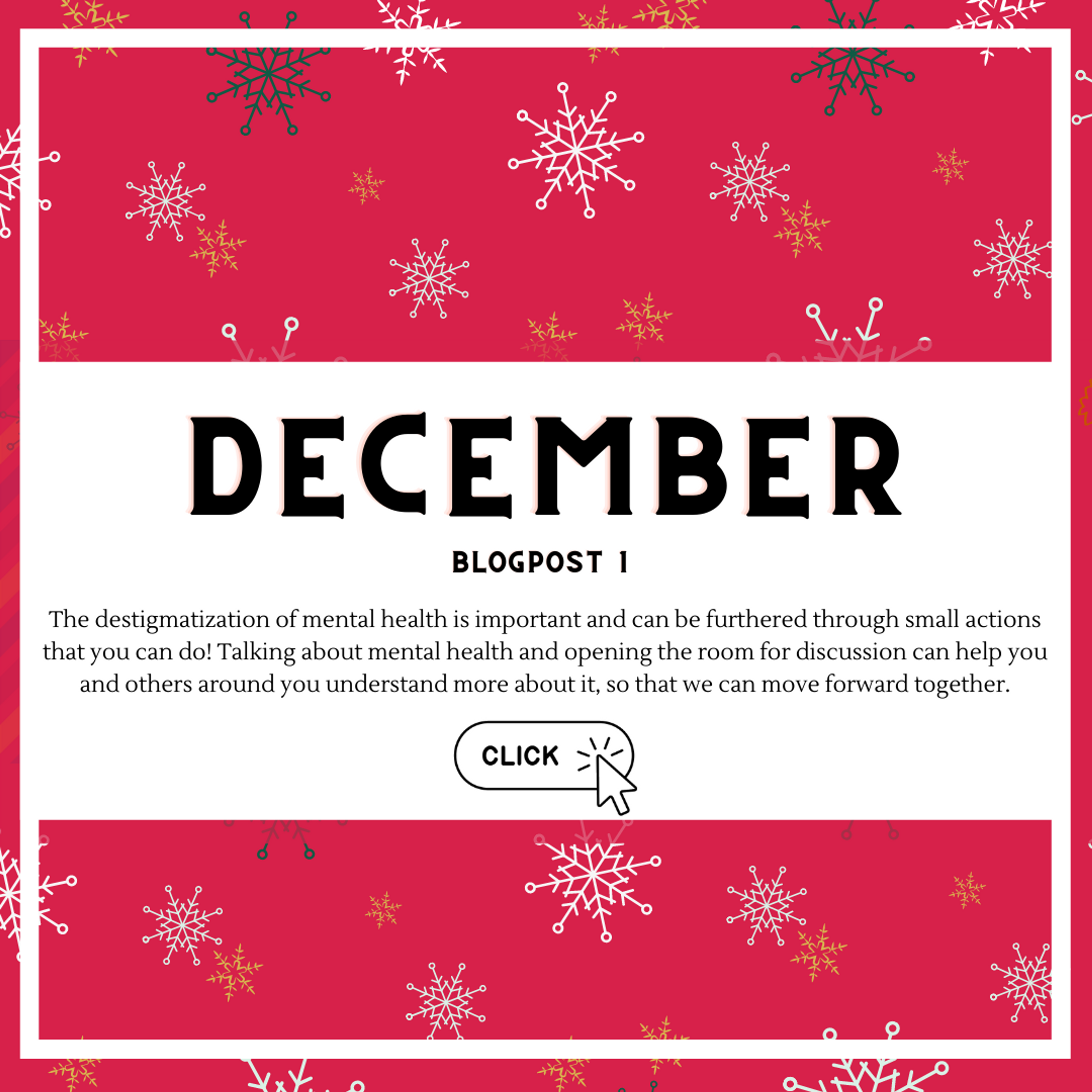There’s less sunlight and winter is finally here! Although Toronto doesn’t seem to have much snow, the festive feelings are starting to float around! The end of classes are right around the corner which means we’re in for a stressful few weeks ahead. Although it has become much more talked about in current media and social discourse, mental health is still a relatively new area of health that has joined the conversation.
As with any health issues, mental health is not one to take lightly and like physical health, everyone has one and can take care of theirs. What can be surprising to a lot of people is just how common mental health illness affects the national community. One is two Canadians struggle with or have previously struggled with mental illness by the age of 40. (1) Even with such staggering numbers of people that have been affected directly by mental illness, many have not been able to receive adequate care or treatment. “75 percent of children with mental disorders do not have access to specialized treatment services" (2) and not only that but “aboriginal youth are about five to six times more likely to die by suicide than non-Aboriginal youth. Suicide rates for Inuit youth are among the highest in the world, at 11 times the national average.” (3) The discussion surrounding mental health must be destigmatized in order to be able to move forward and come to a place where people feel safe and welcome to talk about it.
If you yourself feel as though you are struggling with your mental health or simply want to start a conversation with your family about mental health, here are things to remember as you approach the subject. “1. Know that there’s nothing wrong with asking for help 2. Bring it up 3. Explain how you’re feeling 4. Say you want to help 5. If you need to, try again 6. Don’t wait.” (4) For a more in depth description of these steps, refer to the article linked below.
As unfortunate as it is, formal therapy and counselling can be expensive and have long wait times. If you are in a situation where you don’t feel comfortable speaking about mental health openly, there are private/anonymous resources you can access. The crisis text line is available 24/7 and free, just text 686868. (5) Another great resource is the Toronto Distress Centre crisis line, 416-408-4357 which is a free GTA helpline. (6) These are just two of the free resources accessible to you, others can be found at the UofTMHA website under resources and the CAMH crisis resources page.
Destigmatization is still a challenge many are facing in the light of mental health but together we can create positive discourse and ensure that everyone gets the support they need.
_________________________
1 “The Crisis Is Real,” Driving Change, CAMH, accessed December 4, 2020, https://www.camh.ca/en/driving-change/the-crisis-is-real.
2 Ibid.
3 Ibid.
4 “How to Talk to Your Parents About Getting Help,” Teenagers, Child Mind Institute, accessed December 4, 2020, https://childmind.org/article/how-to-talk-to-your-parents-about-getting-help-if-you-think-you-need-it/.
5 “Resources,” UofTMHSA, accessed November 27, https://uoftmha.weebly.com/resources.html.
6 Ibid.
